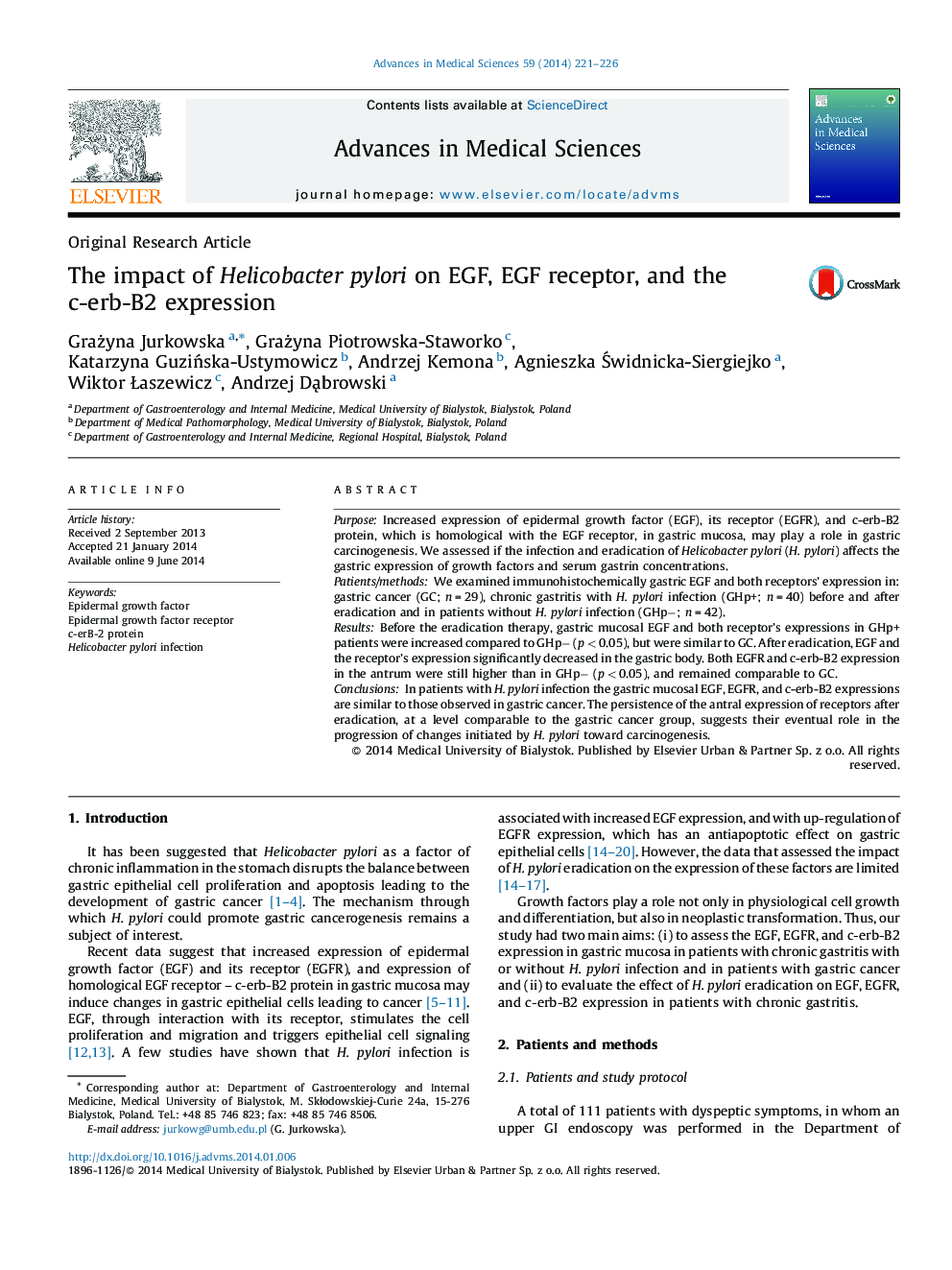| Article ID | Journal | Published Year | Pages | File Type |
|---|---|---|---|---|
| 2032116 | Advances in Medical Sciences | 2014 | 6 Pages |
PurposeIncreased expression of epidermal growth factor (EGF), its receptor (EGFR), and c-erb-B2 protein, which is homological with the EGF receptor, in gastric mucosa, may play a role in gastric carcinogenesis. We assessed if the infection and eradication of Helicobacter pylori (H. pylori) affects the gastric expression of growth factors and serum gastrin concentrations.Patients/methodsWe examined immunohistochemically gastric EGF and both receptors’ expression in: gastric cancer (GC; n = 29), chronic gastritis with H. pylori infection (GHp+; n = 40) before and after eradication and in patients without H. pylori infection (GHp−; n = 42).ResultsBefore the eradication therapy, gastric mucosal EGF and both receptor's expressions in GHp+ patients were increased compared to GHp− (p < 0.05), but were similar to GC. After eradication, EGF and the receptor's expression significantly decreased in the gastric body. Both EGFR and c-erb-B2 expression in the antrum were still higher than in GHp− (p < 0.05), and remained comparable to GC.ConclusionsIn patients with H. pylori infection the gastric mucosal EGF, EGFR, and c-erb-B2 expressions are similar to those observed in gastric cancer. The persistence of the antral expression of receptors after eradication, at a level comparable to the gastric cancer group, suggests their eventual role in the progression of changes initiated by H. pylori toward carcinogenesis.
